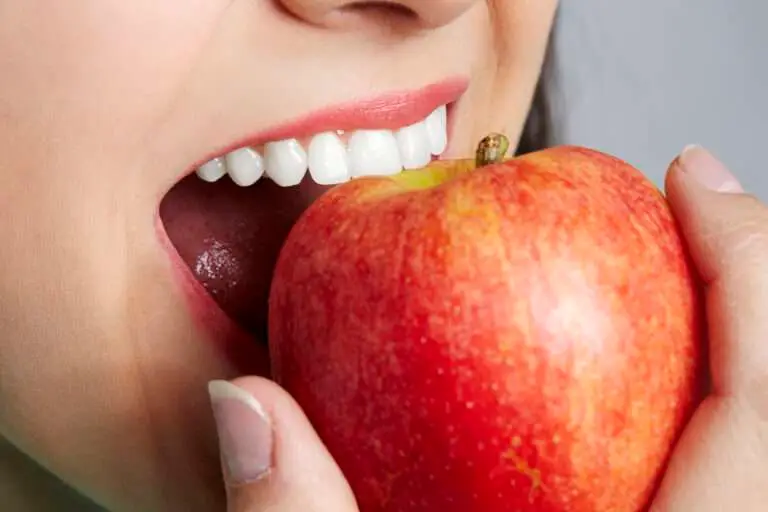Foods to Eat With New Dentures
Foods to Eat with New Dentures: What Can You Eat With Dentures?
Eating with new dentures can pose a challenge to beginners. With detailled breakdown, find out what you can eat during the first days after surgery and how to progressively adapt to eating with new dentures. Recover your confident smile and go through a smooth healing process with our meal recomendations for each day after surgery!

Table of Contents
How to Eat with Dentures? —An Introduction
Adjusting to life with new dentures can feel like a chore. Smiling, talking, swallowing, and chewing food—the basic activities demand ‘new learning’ and ‘adaptation.’ Whether you are a first-time denture wearer or transitioning from conventional dentures to the implant-supported type, it is critical to understand when and how to eat certain foods, ensuring easy adoption of the dentures whilst ensuring implant longevity.

The Secret to Comfortable Eating with New Dentures—Top Tips
Implant-supported dentures are exciting for all, especially if you have waited long to make the decision or have been struggling with no teeth or loose, uncomfortable dentures before.
Good things take time, and so will the new teeth.
Here are some tips to help you figure out the dentures before you complain, “I can’t eat with my new dentures.”
- Go slow: Eating with new dentures, speaking, and swallowing can take time. Be patient and go slow. Eat in small bites and specific types of foods as advised by the dentist and slowly transition to normal dietary and oral patterns.
- Take one bite at a time—be careful: Despite following the list of best foods to eat with new dentures, avoid large bites with the front teeth, tearing tough foods, or foods that need massive grinding. Find the sore spots while eating and revisit the dentist for adjustments. Implant-supported dentures are far more stable and retentive than the traditional ones; feel free to chew as and how you like once you feel confident with them.
- Revisit your dentist for adjustments: Work closely with your dentist and visit as scheduled to get the new dentures adjusted and customized to fit your mouth better.
- Let your mouth adapt and feel confident: The confidence to eat and talk will grow as days pass and the new dentures start to feel comfortable. It may take weeks to months, but once adjusted, it stays for life.
- Clean your dentures: Follow every personalized oral hygiene instruction as given by your dental implantologist to ensure gum health and denture longevity.
"Implant-supported dentures are far more stable and retentive than the traditional ones; feel free to chew as and how you like once you feel confident with them. "
Eating With Dentures for the First Time—What to Eat
You’ve just got your new implant-supported dentures placed. Let’s focus on the best foods for new denture wearers:
Week 1 (days 0-7)
The first week is unquestionably tough. The dentures feel new and heavy for the gums. The mouth may feel sensitive and sore. It is best not to strain the denture at all. Here’s what you can eat:
| Category | Description |
|---|---|
| Chopped and mashed food | Mashed potatoes, rice and lentil broths, scrambled soft eggs, boiled and crushed vegetables, shavings of meat crushed and added to soft porridges, poached fish, tuna shavings in rice broths, etc. |
| Pureed foods | Puddings, custards, oatmeal pancakes, applesauce, meat and vegetable soups, meat broths, mashed fruits like avocados and bananas, milkshakes, fruit smoothies, etc. |
| Soft foods | Scrambled eggs or a soft omelet with cheese |
Week 2 (days 8-15)
The mechanical soft foods continue to reign; however, not all foods need complete grinding and mashing. You can slowly attempt a combination of soft, slightly textured, and moist foods. For example:
| Category | Description |
|---|---|
| Soft Grains & Porridges | Rice porridge, mashed potatoes |
| Protein Foods | Overcooked chicken or fish (flaked), scrambled eggs, soft omelet with cheese, steamed tilapia with ginger, baked salmon with vegetables |
| Fruits & Dairy | Applesauce, Greek yogurt with honey and bananas, stewed apple slices |
| Soups & Comfort Foods | Creamy potato leek soup, vegetable soups with soft ingredients |
You can now start snacking on thin slices of bread or softened cookies with cottage cheese or mashed avocados.
Additional tips for eating with new dentures until the end of the first two weeks:
- Food will taste dull: Taste sensations are severely dampened in the initial days and slowly become better with time.
- Temperature of foods: Dentures are made of insulators. Go easy with hot foods. You may not realize how hot the food is until you burn your tongue.
- Sip fluids intermittently: Chewing with new dentures and swallowing can be tedious in the initial days. Tiny food particles may get stuck. A sip of water or a drink while dining works best.
Weeks 3-4 (days 16-30):
It’s time to reintroduce textured food in larger bites after the first 2 weeks. The typical foods to eat with new dentures include:
| Category | Description |
|---|---|
| Grains & Carbs | Boiled rice, pasta and noodles, overnight soaked or cooked oatmeal, soft bread slices, cakes and muffins |
| Protein Foods | Well-cooked, moist slices of fish, meat, and eggs, meat stews, meatballs, feta cheese, ricotta cheese |
| Vegetables & Fruits | Finely cut vegetables (parboiled and stir-fried), sliced fruits |
Additionally, always sit and eat your food off a plate; rushing through meals can disrupt chewing patterns and force you to gulp down large bites, ruining digestion.
Post 30 days, unless you have sore spots or are still finding it difficult to cope, you’re good to eat most of the cooked foods without slicing and even chopped raw, crunchy salads.
Foods to avoid with new dentures
Certain foods are best avoided with dentures altogether; however, feel free to eat them once in a while after you have adjusted to the new dentures.
- Unsoaked, hard nuts
- Chewing gums
- Gooey sticky sugary treats
- Whole fresh fruits
- Tough red meat
- Crispy and crusty breads
"Chewing with new dentures and swallowing can be tedious in the initial days. Tiny food particles may get stuck. A sip of water or a drink while dining works best "
Foods to Eat with New Dentures: Key Takeaways
Eating with new dentures can be simpler than you think. At Smile 24h, we encourage open dialogues and transparent communications with patients. It helps us personalize treatment plans and post-care advice. We always recommend visiting one of our Smile 24h Expert Clinics, where Certified ZAGA Doctors, known for their expertise in advanced implantology, will address your specific needs and create tailor-made solutions to achieve the best results. Together with the ZAGA Concept and its “patient-first” approach,” the best foods to eat with new dentures are more enjoyable now than before.

Dr. Medha Gupta, a Prosthodontist & Implantologist with over six years of clinical experience, is also a Medical Communication Expert working with healthcare firms and solopreneurs in India, the EU, the USA, and Singapore. Her expertise lies in transcribing complex medical and dental information into words that resonate with the audience, our readers. As a healthcare business writer and reviewer, she boosts brand credibility for medical/dental practitioners and HealthTech firms by speaking the ‘founder’s mind’ across marketing and sales platforms.
Still have questions? Find your nearest specialist and discover how we can help improve your quality of life with expert care
Frequently Asked Questions (FAQs)
During the first few days, the easiest foods to eat are mashed, pureed, and very soft meals. Examples include mashed potatoes, soft scrambled eggs, rice porridge, fruit smoothies, applesauce, puddings, and blended soups. These foods protect sensitive gums and help you adjust gently to your new dentures.
Most people begin adding more textured foods in Week 3–4 (days 16–30). By this stage, you can try soft pasta, moist meats, sliced fruits, soft bread, and well-cooked vegetables. After 30 days, many patients can return to most normal cooked foods, unless they still have sore spots.
Yes. The article specifically states that implant-supported dentures are far more stable and retentive than traditional removable dentures. This stability makes chewing easier and more comfortable. Once your mouth adapts, these dentures allow you to eat more confidently and naturally.
Your mouth typically needs 2–4 weeks to adapt to new dentures. During this time, chewing, swallowing, and speaking may feel different. Sore spots can appear, and taste may feel muted initially. Gradual adaptation, small food bites, and follow-up adjustments with your dentist help the dentures settle comfortably.
